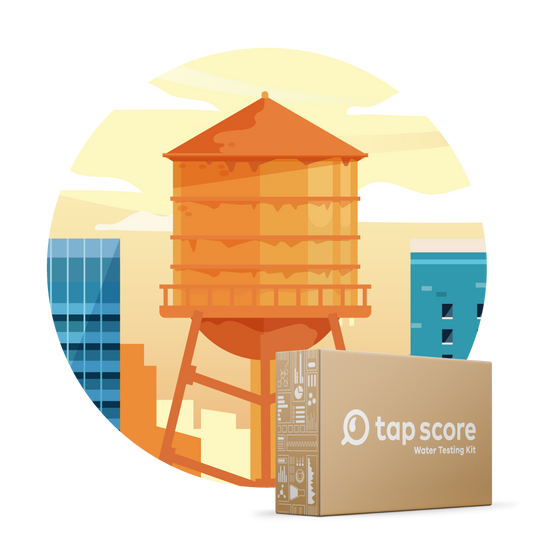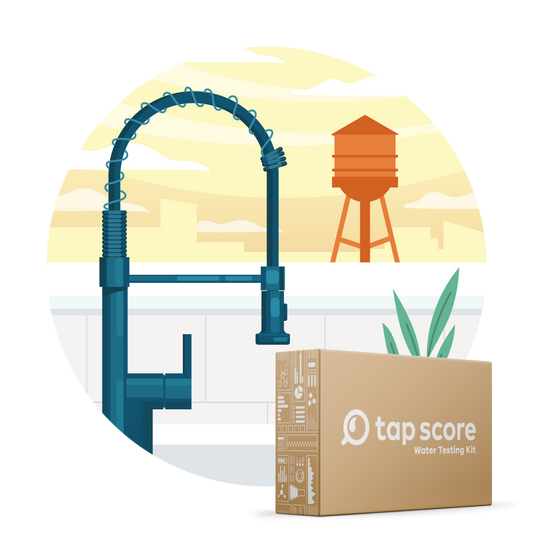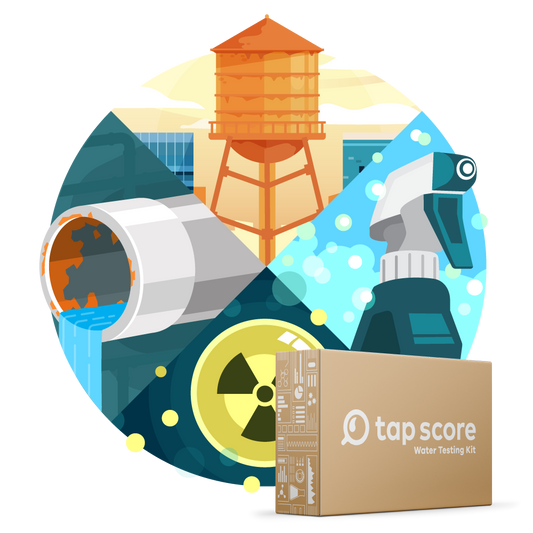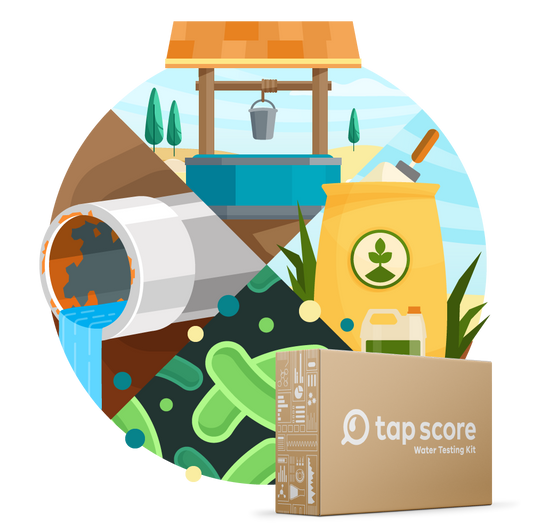
How to Test Your Drinking Water for Carcinogens
Our blog is written by real experts— not AI. Each guide is carefully reviewed and updated based on the latest research. Plus, with no affiliate links, you can count on unbiased insights you can trust.
Worried about contaminants in your tap water that might cause cancer? Like any contaminant exposure, understanding how exposure to carcinogens connects to health outcomes is very complex. Because exposures happen over our lifetime, a health outcome today could be from an exposure decades ago. Moreover, exposures come from many pathways—drinking water, food, dust, and air being some of the major contributors.
In this quick guide, we’ll list some of the water contaminants linked to cancer as well as how to test for them.
Key Takeaways:
- Carcinogens are prevalent in the environment and may be naturally occurring or human-made
- Exposure to a carcinogen does not mean you will get cancer
- Laboratory water testing is the best way to find out if there are carcinogenic drinking water contaminants you need to address
- Treating water with identified carcinogens is a good way to mitigate your cancer risk
What Carcinogens Can Be Found in Drinking Water?
The following contaminants have been linked to possible cancer outcomes that can be found in drinking water systems and private wells nationwide:
- VOCs (volatile organic compounds, e.g. benzene, PCE and TCE)
- Heavy metals (particularly chromium VI, cadmium, and arsenic)
- Phthalates
- Disinfection byproducts (particularly formaldehyde, halogenated compounds like HAAs and THMs)
- PFAS and GenX
- Radon (and other radioactive contaminants, also known as radionuclides)
Exposure to a carcinogen does not necessarily mean you are going to develop cancer. The route of exposure and the dose of the exposure matter.
Some compounds are only carcinogenic if the exposed person has certain gene mutations. Most organizations classify compounds on a spectrum to reflect the fact that scientific evidence varies depending on the compound.
For example, some compounds may be suspected carcinogens, but the research available is not adquate enough to definitively classify them as carcinogens, whereas others are known carcinogens.
The best way to help minimize some of the stress of not knowing is to consider having you water tested by a certified laboratory. Laboratory water tests provide detailed information about water quality.
Testing Drinking Water for Carcinogens
Our Tap Score water testing kits can help you identify exposures to potential carcinogens in your drinking water. The following kits each have a range of carcinogens that are common in drinking water:
We recommend starting with the Advanced City Water Test because this covers a range of heavy metals, disinfection byproducts, petroleum compounds, and other VOCs that may be present in public utility or city water.
The Advanced Well Water test provides similar information tailored specifically for those with a private well.
If you suspect industry activity, the SVOC and PFAS tests may be relevant. The GenX and PFAS test is also relevant if you know your utility is suffering from PFAS contamination.
Finally, if you are on a well or have had prior issues with radon in air, you may want to run the Full Radiation Water Test.
How Can I Reduce My Exposure Risks in Tap Water?
If your water test shows you have potentially cancer-causing contaminants in your water, you will want to find a treatment system that can effectively reduce the contaminants in question.
Three common household water filter technologies are:
- Adsorptive media filtration (e.g. activated carbon, activated alumina)
- Membrane filtration (e.g. reverse osmosis, nanofiltration)
- Ion exchange (e.g. anion or cation exchange)
Between the three of them, it is likely you will find one that is effective for the most concerning contaminants in your water. Additionally, Tap Score water testing kits will include reports that make treatment recommendations that are tailored to your specific contaminant profile.
The Top 4 Home Water Filter Technologies Explained
Additionally, product certifications can help guide the decision-making process. Certifications are handed out by third-party organizations such as the National Sanitation Foundation (NSF), the Water Quality Association (WQA), and the International Association of Plumbing and Mechanical Officials (IAPMO) to help consumers make better informed choices about water treatment products.
NSF/ANSI Certifications Explained
Will Distillation Remove Carcinogens from My Water?
Yes. Distillation is a purification process that removes all impurities from water—including beneficial minerals like calcium and magnesium. It also tends to make water relatively unpalatable to the taste. However, distillation is a labor-intensive purification process that requires a lot of resources to produce a relatively small amount of purified water.
Will Boiling My Water Remove Carcinogens?
No. We do not recommend boiling your water to address possible carcinogens in your water. Some of the carcinogens covered above (e.g. heavy metals, PFAS, phthalates) will not be removed by boiling. In fact, in some cases—e.g. heavy metals—boiling water can actually concentrate the contaminants.
Sources and References
▾Quick Guide to Disinfection Byproducts
How To Remove Haloacetic Acids in Drinking Water
Heavy Metals Everyone Should Test For
The Top 4 Home Water Filter Technologies Explained
NSF/ANSI Certifications Explained
Quick Guide to Certified Water Filters for PFAS
Quick Guide to Certified Water Filters for Lead










